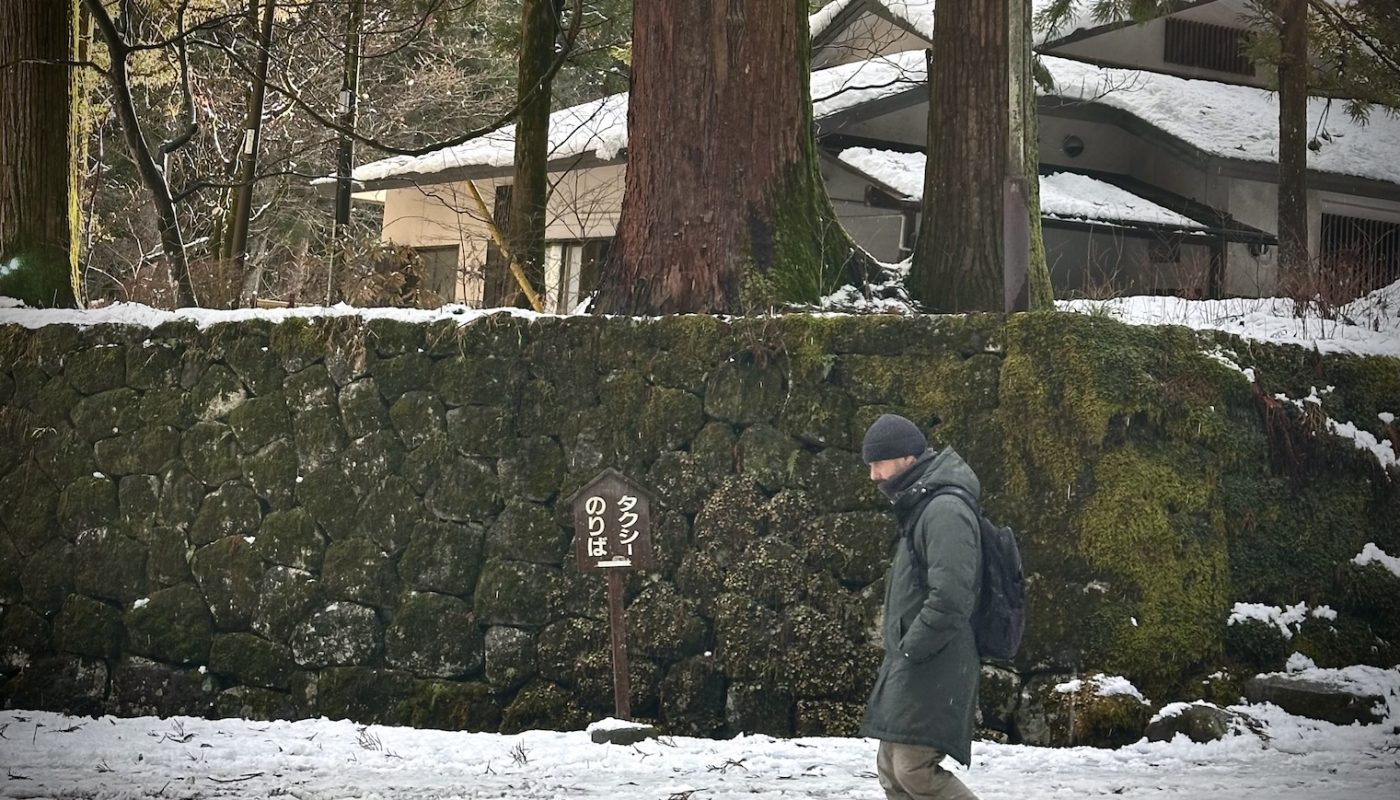Pathways in Japan: An Insider’s Guide to Hidden Treasures – Blog #8 ✨🗾
TL;DR – What You’ll Discover in This Blogpost:
- The real meaning behind Honne vs. Tatemae
- Why silence isn’t awkward—it’s respectful
- Local etiquette from my Osaka-based friend
- Social rules for trains, konbinis, and even your shoes
- Surprising cultural habits you’d only notice if you slow down and observe
🧊 Quiet Isn’t Cold – It’s Respect
Step onto a Japanese train, and you’ll instantly feel it—the hush. No chattering groups, no music leaking from headphones, no one munching on snacks. Even friends speak in low voices, if at all.
My friend, who has lived in Osaka for 3 years, explained this isn’t just politeness—it’s a system. Onboard announcements often say:
“Please refrain from phone calls.”
“Set your phone to silent.”
“Eating and drinking is not allowed.”
She also gave me a tip about priority seats (often marked in red or labeled with icons). These are reserved for the elderly, pregnant women, or people with physical needs. Of course, tourists sometimes sit there without realizing.
But here’s the nuance:
If you sit in a priority seat and stand up to offer it to someone who looks older, they might politely decline—not because they don’t need it, but because they don’t want to trouble you.
Unless they genuinely feel unwell or tired, many seniors won’t accept the seat out of social courtesy.
So the best practice? Avoid those seats if you don’t need them, and keep an eye out for people who might.
🍢 No Snacks on the Go – And No Bins Either
One of my first mini-shocks in Japan? There are barely any trash cans. But streets are spotless. How?
Simple: eating while walking is frowned upon, and everyone takes their trash home or keeps it neatly tucked in their bag. My Osaka friend carries a small trash pouch in her bag—next-level tidy.
So next time you’re tempted to unwrap that onigiri mid-walk… maybe wait.
🎭 Honne vs. Tatemae – What They Say vs. What They Mean
One of Japan’s most fascinating cultural concepts is Honne (本音, your true feelings) and Tatemae (建前, your public face).
Here’s how my Osaka friend explained it to me:
Let’s say you ask a hotel staff if it’s okay to check in early. They smile politely and say, “It might be a little difficult… but let me see what I can do.”
What they really mean is: “No.”
But instead of saying it outright, they wrap it in kindness to avoid confrontation or making you feel bad.
This way of communicating is super common in Japan—whether it’s at restaurants, stores, or even among friends. Once you understand this nuance, you’ll avoid a lot of confusion (and possibly awkward follow-ups).
👀 The Non-Verbal Dance: Eye Contact, Pauses, and Polite Distance
Forget dramatic gestures. In Japan, communication is often subtle and quiet.
People tend to avoid direct eye contact, especially with strangers. You’ll notice small nods, quiet pauses, and mutual spacing—what locals call “reading the air” (kuuki wo yomu). I once blocked the FamilyMart’s exit. No one said a word… but the quiet floor-staring from other customers gently pushed me aside—psychologically.
It’s polite. It’s wordless. It’s effective.
🏪 At the Convenience Store: The Ritual of Polite Efficiency
Japan’s convenience stores (7-Eleven, FamilyMart, or Lawson) are iconic—but they run on silent choreography.
From my friend’s wisdom bank:
- Have your payment ready in advance.
- Don’t hand money to the cashier—place it on the small tray provided. This isn’t just habit, it’s a subtle gesture of respect and efficiency.
- Step aside right after paying to make way for the next person.
Also, unlike in some countries, there’s no chatting at the register. It’s not rude to talk—it’s just that everything here moves with quiet, efficient rhythm. Be polite, be quick, and the flow continues.
🚪 Mind the Space—And Your Shoes
Japan values personal space more than you might think. Whether it’s brushing past someone or sitting too close, giving others room is an act of social respect.
And when you enter a home—or sometimes even a restaurant—shoes come off. Look for the little genkan (entrance area), often with slippers lined up. Step up into the room only after removing your shoes.
I was told by my Osaka friend that some tourists unknowingly walk straight onto tatami mats with shoes on—and while no one yells, you’ll definitely get the “polite panic” look from staff. It’s one of those quiet-but-serious cultural rules.
💸 Cash Is Still King
This one surprised me: many local restaurants and small shops are still cash-only. Even topping up your Suica or Pasmo card at machines usually requires cash—unless you’re using it via Apple Wallet, which allows card top-ups.
So yes, in this land of robots and bullet trains, you’ll still need a good ol’ wallet of yen.
🌸 Hidden Habits & Quirky Realities
The more you observe, the more you notice Japan’s little secrets—the everyday details locals don’t even think twice about.
For example, my Osaka friend once pointed this out, and now I can’t unsee it:
“Japanese women often skip makeup, but hair must be flawless.”
Even during grocery runs or commutes, you’ll see women with perfectly styled hair—sleek buns, elegant curls, or neatly clipped bangs. It’s subtle, but it’s a big cultural priority. In a way, hair reflects self-discipline more than flashy makeup ever could.
Another surprising detail? Bare legs in winter.
Even when temperatures dip low, you’ll see high school girls and young women wearing skirts without tights. The reason ties back to the Japanese cultural concept of “gaman” (我慢)—the quiet endurance of discomfort without complaint.
This mindset is often ingrained from a young age. For many girls, school uniforms are worn year-round, and sticking to the uniform—skirts included—is about fitting in and building group identity. So while we tourists might bundle up in layers, they tough it out with bare legs as a quiet show of resilience. Fashion meets fortitude.
And here’s a fun ambulance fact that had me both laughing and admiring the system:
Years ago, calling an ambulance in Japan was completely free—no questions asked. This led to a surprising trend: elderly folks who couldn’t walk home would call an ambulance like a free taxi. Not exactly the intended use, but hey—efficient, in a very Japanese way.
🌿 Final Thoughts: Culture in the Quiet
Some countries shout their identity. Japan whispers it. If you slow down and tune in, you’ll find the culture speaking through gesture, silence, spacing, and soft smiles.
Thanks to my Osaka friend’s guidance, I didn’t just visit Japan—I began to see how it breathes. These quiet customs might seem invisible at first, but they shape everything: how people interact, move, eat, and exist together.
🧳 Quick Tips to Travel More Mindfully in Japan:
- Lower your voice in public—especially on transport.
- Don’t eat while walking, and keep a small trash bag with you.
- Use the tray at cash registers—don’t hand money directly.
- Always remove your shoes when entering homes (and some restaurants).
- Carry enough cash for small shops and restaurants.
- Don’t sit in priority seats unless necessary.
- Watch, observe, and go with the cultural current—you’ll learn more than any guidebook can teach.
Have you noticed any unspoken rules while traveling in Japan—or anywhere else? Share your story in the comments👇! Let’s swap culture shocks and quiet surprises. 🗣️✨
This is the final post in my Pathways in Japan series—but the journey doesn’t end here! Catch up on all 8 blogposts for insider tips, local food finds, hidden gems, and thoughtful travel. 🌸
📍 Don’t miss out! Continue Exploring Japan:
- ✨Blogpost 1 Japan—Where Culture, Cuisine, and Nature Intertwine
- 🚆Blogpost 2 Overwhelmed by Japan’s Rail System? Unlock the Ultimate Ticketing Guide for First-Time Travelers
- 🍡Blogpost 3 Osaka Like a Local: Hidden Temples, Secret Bars, and the REAL Takoyaki Hunt
- ⛩️Blogpost 4 Kyoto: A Journey Through Time in Japan’s Ancient Capital🇯🇵⛩️
- 🗻Blogpost 5 From Sacred Peaks to Shimmering Streets: My Journey from Mt. Fuji to the Heart of Tokyo 🇯🇵
- 😋Blogpost 6 Authentic Japanese Food Experiences: Eat Like a Local
- 🏔️Blogpost 7🇯🇵 Nikko Unplugged: Shrines, Snowfall & the Serenity of Lake Chuzenji
- ✨Blogpost 8✨ Unspoken Japan: Cultural Nuances Locals Live By (That Travelers Often Miss)(🔝This article)




Great article, love learning more about japanese culture😊
Thank you so much! 😊 I’m really glad you enjoyed it—there’s so much depth to Japanese culture, and I love sharing the little things that often go unnoticed.